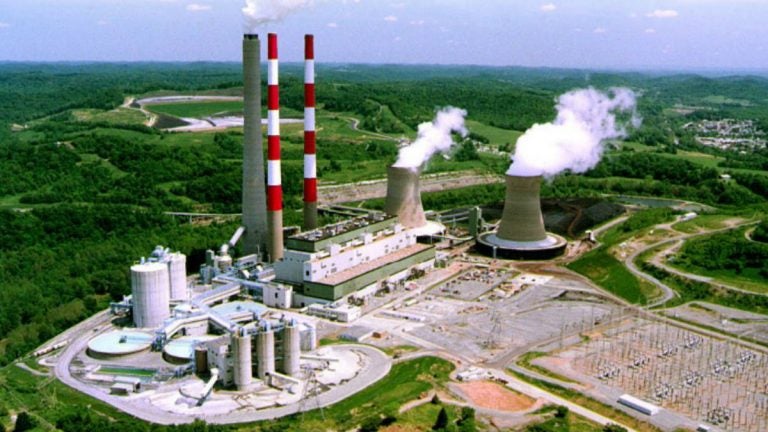Delaware to EPA: Reconsider petition about ‘upwind’ pollution
The state is asking the agency to give officials a chance to explain the importance of reducing air pollution beyond Delaware's borders.

Delaware wants the EPA to rule that the Harrison Power Station in Haywood, West Virginia, is one of four plants violating clean air standards and negatively impacting Delaware.
The state of Delaware continues to urge the U.S. Environmental Protection Agency to consider its concerns about pollution traveling from other states.
Shawn Garvin, secretary of the Department of Natural Resources and Environmental Control, is asking the agency to give state officials a chance to explain the importance of reducing out-of-state air pollution.
The move comes after a May 31 notice from EPA Administrator Scott Pruitt that denied four petitions Delaware made in 2016 against four power plants in Pennsylvania and West Virginia over alleged violations of clean-air standards that adversely affect the First State.
Gov. John Carney and U.S. Sen. Tom Carper both denounced the EPA decision that will be the subject of a public hearing this month in Washington, D.C.
Garvin, who has requested an extension on the timing, wants the hearing moved to Wilmington.
“Delaware is deeply concerned at the setting of a public hearing less than two weeks after publishing EPA’s proposed action in the Federal Register,” he wrote.
Garvin argued it’s not enough time to prepare for a hearing and holding it in Washington will limit participation by Delawareans who are most affected by poor air quality.
Every summer, Delaware’s air is dirtied by ozone, state officials contend. The problem continues to increase as power plants emit pollutants, such as nitrogen oxide, without proper controls.
Environmental officials say the pollutants contribute to asthma, respiratory disease and other health problems among Delaware residents. Short-term exposure to ozone can cause rapid, shallow breathing and related airway irritation; coughing; wheezing; shortness of breath; and exacerbation of asthma.
The state contends about 90 percent of the increase in ozone levels in Delaware is created by the transport of air pollutants from states that are upwind.
In 2016, the state said the Clean Air Act requires action from the EPA administrator within 60 days of receiving the state’s petition.
In January of this year, the state said the agency hadn’t taken action to address air quality, and threatened to sue if it didn’t take proactive measures.
WHYY is your source for fact-based, in-depth journalism and information. As a nonprofit organization, we rely on financial support from readers like you. Please give today.





